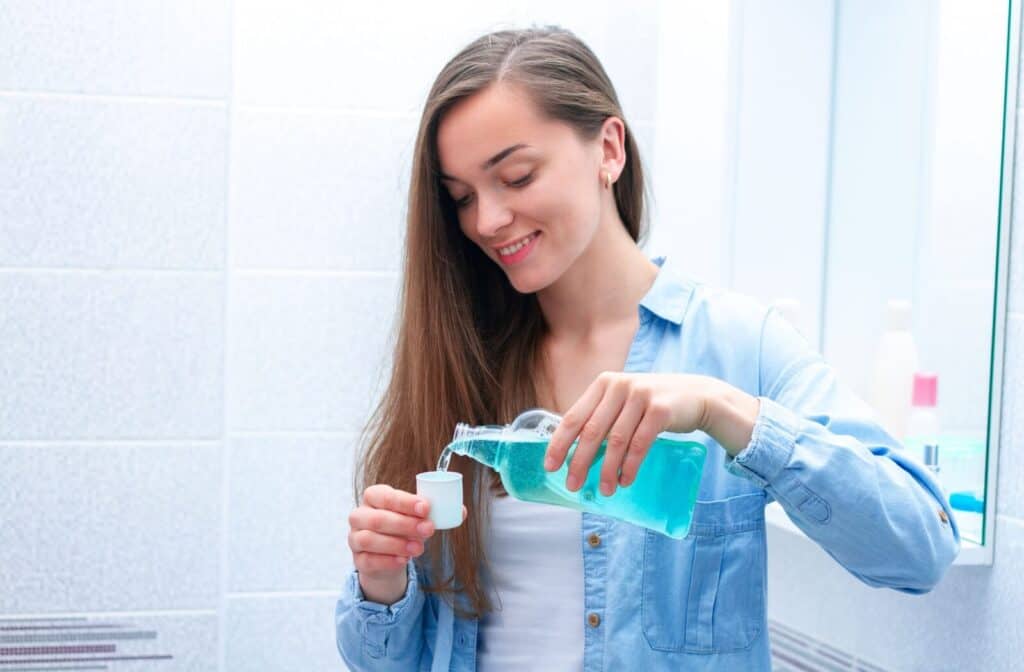5 Things You Can (Not) Do After Tooth Extraction
A tooth extraction, especially wisdom teeth, can sometimes be necessary to maintain oral health. If you have recently had a tooth extraction, it is essential to always follow your dentist’s advice. Proper oral care is a must; learning what you can—and cannot—do after a tooth extraction is essential.
Make sure that you:
- Brush your teeth properly
- Use gauze as recommended
- Avoid using straws
This can help promote a better recovery while lowering your risk of complications.
Can I Brush My Teeth After Wisdom Tooth Extraction?
Even though your mouth will be sensitive after a tooth extraction, you will still need to practice proper oral care. It is a key part of avoiding infection and further inflammation. However, it is essential to do it properly; brushing too hard can cause significant problems if you are not careful.
It can help to wait a few hours before brushing your teeth after your initial tooth removal. This allows a blood clot to form and the healing process to begin.
Make sure that you:
- Use a soft-bristled toothbrush, as softer bristles are less likely to irritate the sensitive tissues in your mouth.
- Avoid the extraction site and be extremely careful when brushing near it. Even a light touch can trigger bleeding, dislodge the clot forming, and increase the risk of infection.
- Use a gentle touch.
- Rinse your mouth with a saline solution to help clean the area without direct content.
Brushing after a tooth extraction requires careful attention and a gentle hand. Remember, it is better to be safe than sorry.
Can I Use Mouthwash After Wisdom Tooth Extraction?

Mouthwash can be a great addition to your post-extraction oral hygiene routine, but timing and ingredients are crucial factors to consider. Make sure you wait at least a few days before using mouthwash; it can disrupt the immediate healing process if you begin too soon.
Avoid alcohol-based mouthwashes; they are too harsh for sensitive areas in the mouth, especially post-extraction. Instead, look for an alcohol-free antiseptic mouthwash. This helps kill any residual bacteria that may be lingering in the mouth without causing inflammation or irritation in the surgery site.
In some situations, your dentist may recommend a special rinse to help with pain, swelling, and infection prevention. Use this rinse as recommended; do not stray from your dentist’s advice.
If your dentist does not recommend a special rinse, it can help to dilute a small amount of mouthwash in water to make it less concentrated. Do not swish it too vigorously, as this can inflame the infection site.
When to Stop Using Gauze After Tooth Extraction
Gauze plays a critical role in the immediate recovery period, but it should not be used indefinitely. Gauze helps apply pressure to the extraction site, which is a crucial part of the healing process; this helps to form a clot and stop bleeding in the area. Meanwhile, it acts as a barrier, stopping your tongue and any food particles from disrupting the healing process.
You should bite down on the gauze for at least 30 minutes after the initial extraction. This helps your body begin forming a blood clot to prevent potential problems. During this initial period, pay attention to the gauze; if it becomes too bloody or full of saliva, replace it.
Once the bleeding has stopped or significantly reduced, you likely can remove the gauze. Try not to leave it in for too long, as this can begin to dry out the surgical site and delay the healing process.
When Can I Use a Straw After Wisdom Tooth Extraction?
Though it may seem at first that using a straw after surgery is a safe choice, the opposite is true; straws can cause significant problems if used too soon after tooth extraction.
When using a straw, you create suction in your mouth to pull the liquid through. This suction force can dislodge the blood clot and lead to serious problems at the surgery site. Suction also can introduce unwanted debris into the area, which can settle in the site and lead to infection.
Wait until you are further along in the recovery process. In the meantime, use regular cups and try to take small sips; this is less likely to cause a problem.
Remember to Visit Your Dentist
Your recovery from a tooth extraction may take some time, but following the above advice lowers the risk of potential complications. However, there is one more important step to follow—remember to regularly visit our team at South Ancaster Family Dental. We can monitor your progress, give you updated advice on how to achieve a smooth recovery and help you maintain your oral health. Book an appointment with our team today!

